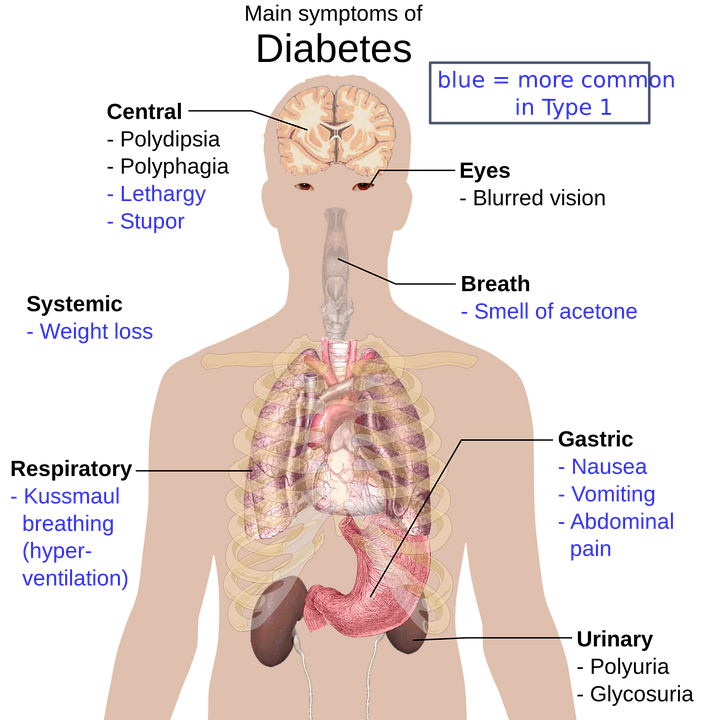The human body needs to continuously take supplements in order to function optimally as not all vitamins and minerals are taken in recommended daily amounts. One such very important vitamin is folate or vitamin B9 or folic acid. In order to prevent further complications brought about by the lack of certain vitamins, it is wise to be proactive and identify folic acid deficiency symptoms at early onset.
Folic acid vs. folate
Both folic acid and folate are forms of the water-soluble vitamin B. Folate, otherwise known as vitamin B9, naturally occurs in foods, while folic acid is the synthetic folate compound that is used in vitamin supplements because of its increased stability.
Folate has been named after “folium,” Latin for “leaves,” because they were first isolated from spinach. Also, folate is the generic term used for both the naturally occurring folate that is found in foods and the synthetic form, folic acid.
The vitamin B complex nutrients are needed by the body in small amounts in order to function and stay healthy. In fact, according to recent medical journals, folate is involved in a number of intracellular reactions as a cofactor.
Deficiency potential
Research has found that the potential for folate deficiency is high or very common. In fact, it can be a serious problem if left untreated. In a 2006 USDA analysis of obtained data, most people in the US obtained adequate amounts of vitamin B9. But there is still a risk for some groups obtaining insufficient amounts.
Because folic acid is water-soluble, excess amounts of the vitamin in the body is excreted via human urine. This means that the human body needs a constant supply of this vitamin because the body cannot store it. And the recommended daily dose of folate is 0.4mg/d, which has been established for 20 years.
Read More: Zinc Deficiency
Uses of vitamin B9 in the body
Vitamin B9 is vital for synthesis and repair of DNA and RNA, the body’s genetic material. These vitamins also aid in the rapid cell division and growth and are important in the production of red blood cells in the bone marrow.
But folate is particularly important for pregnant women to avoid major birth defects in the baby’s brain or spines, such as neural tube defects, including Spina Bifida and anencephaly. Combined with vitamin B12, it controls the blood levels of the amino acid homocysteine, which is associated with certain chronic conditions such as heart disease.
Folate is also used to prevent eye disease age-related macular degeneration (AMD), to reduce signs of aging, to treat sleep problems, depression, AIDS, and inherited disease called Fragile-X syndrome. It is also used for age-related hearing loss, Alzheimer’s disease, and memory loss.
Folic acid deficiency symptoms
It is widely known that prevention is better than cure. So in order to avoid any further complication due to the lack of vitamin B9 in the body, here are the most common folic acid deficiency symptoms to watch out for, however subtle they may
be:
- Poor immune function, which includes frequently getting sick
- Chronic fatigue/low energy; also include chronic fatigue syndrome
- Poor digestion, including bloating, IBS, and constipation
- Early appearance of gray hair
- Pale skin
- Mouth sores and tender, swollen tongue
- Developmental problems during pregnancy and infancy, consisting of stunted growth
- Mood change often, such as irritability
- Anemia (severe cases)
Causes of folic acid deficiency
- Diet. One of the most common causes is poor diet. Folate naturally occurs in a wide array of foods, and among its richest sources include dark green leafy vegetables (such as spinach, asparagus, and broccoli), beef liver and kidney, yeast, and beans. Among other sources are eggs, beet, milk and other dairy products, and whole wheat bread.
- Eating overcooked fruits and vegetables. Folate is easily destroyed by heat.
- Diseases such as severe kidney problems requiring dialysis, certain types of cancers, celiac disease, and Crohn’s disease affect the absorption of the vitamin in the GI tract
- Too much alcohol consumption increases folate excretion via the urine
- During pregnancy, a lot of folic acids are used up by the growing baby
- Side effects of medication, which includes phenytoin (Dilantin), trimethoprim-sulfamethoxazole, methotrexate, and sulfasalazine
Diagnosis
There are exams and tests taken to confirm folate deficiency in an individual. One of these is a blood test, to check the number of red blood cells and whether the body has enough vitamin B9. This is most common among pregnant women during their prenatal check-ups. But the most common procedure is the doctor checking the patient’s history and current health condition.
Read More:
- The 5 Best Herbal Remedies To Treat Acne
- 8 Home Remedies To Banish Acne Scars And Discoloration For Good (Info-Graphic )
- How To Fix Being Skinny Fat
- 4 Reasons Why Food Handling Training Is Important
- Top 4 Natural Combination For You To Eliminate Blackheads (Infographics)
- How To Remove Acne Scars Naturally
- Top 5 Foods For Healthier And Thicker Hair
- Types Of Stethoscopes
- Must-Follow Tricks To Burn More Calories






















